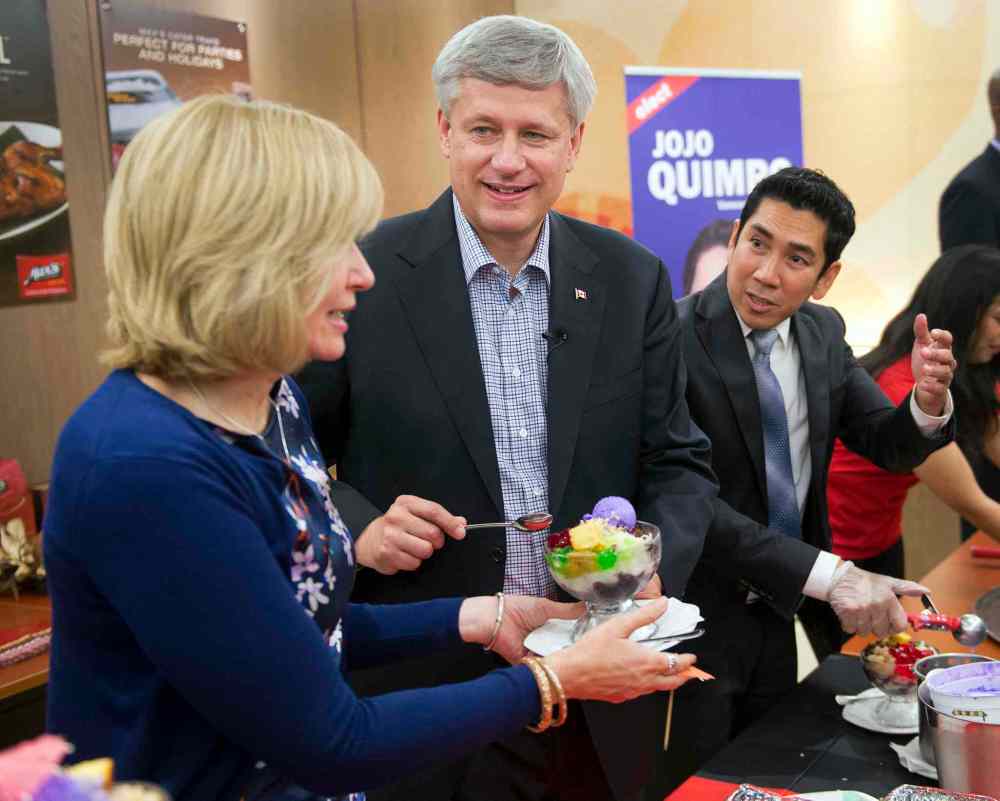Surplus no cause for spending spree
Advertisement
Read this article for free:
or
Already have an account? Log in here »
To continue reading, please subscribe:
Monthly Digital Subscription
$0 for the first 4 weeks*
- Enjoy unlimited reading on winnipegfreepress.com
- Read the E-Edition, our digital replica newspaper
- Access News Break, our award-winning app
- Play interactive puzzles
*No charge for 4 weeks then price increases to the regular rate of $19.00 plus GST every four weeks. Offer available to new and qualified returning subscribers only. Cancel any time.
Monthly Digital Subscription
$4.75/week*
- Enjoy unlimited reading on winnipegfreepress.com
- Read the E-Edition, our digital replica newspaper
- Access News Break, our award-winning app
- Play interactive puzzles
*Billed as $19 plus GST every four weeks. Cancel any time.
To continue reading, please subscribe:
Add Free Press access to your Brandon Sun subscription for only an additional
$1 for the first 4 weeks*
*Your next subscription payment will increase by $1.00 and you will be charged $16.99 plus GST for four weeks. After four weeks, your payment will increase to $23.99 plus GST every four weeks.
Read unlimited articles for free today:
or
Already have an account? Log in here »
Hey there, time traveller!
This article was published 14/09/2015 (3761 days ago), so information in it may no longer be current.
It was not meant as a slap on the back, but the strange new realities of campaign 2015 saw the NDP leader effectively congratulate the Conservative government for the year-end financial results. A $1.9-billion surplus — in the bottom line where a deficit of almost equal measure was expected — is good news, Tom Mulcair said Monday.
Good news, indeed, for the man who could be prime minister on October 19, a reasonable prospect the NDP has never seriously had to contend with previously. Mulcair, who will lay out the cost of his election promises this week, has been repeatedly challenged on his vow to balance budgets. Many, including some within his party, don’t believe that’s possible given his pricey to-do list of election promises.
While the surplus for 2014-15 is considered by most economists to be slight, (marginal even, based on a federal budget of some $280 billion) it is a little breathing room for Mulcair. It won’t make a difference Liberal Leader Justin Trudeau, who plans to run deficits for at least the next three years.

And it was a bonus for a beleaguered Tory camp. Conservative Leader Stephen Harper was consuming all the available oxygen on the campaign trail Monday, reminding Canadians that with the economy still fragile, it is too risky to hand power now to either the NDP (and see taxes rise) or the Liberals (a sure plunge into deficit).
The nominal surplus sprung from higher revenues in personal and corporate income taxes, along with lower than expected interest rates charged on government debt, rates that are bottom dwelling because the global economy is still sputtering. Further, there was $800 million returned to the treasury in lapsed spending from departments. So an expected $2-billion deficit for 2014-15 flipped to a surplus.
It was an unexpected “gift” at an opportune time, and the government “allowed” the Finance department to release the information early. Typically, year-end financial reports are published in late September or October.
But lapsed spending can cut two ways for the Conservatives, who have battled accusations of cutting too close to the bone and hurting the vulnerable — Canada’s First Nations communities and veterans, for example — in their dogged pursuit of balancing the budget. Further, it gives fuel to opposition parties that twist the truth: the Tories’ decision to reduce future increases to health transfers is painted as cuts to health spending.
On that point, even the guru of deficit slaying, former Liberal prime minister Jean Chrétien, came out of political retirement on the weekend to slam the Tories for fiscal mismanagement. The man who dug Canada out of decades of deficit-funding in the 1990s joined Trudeau on the campaign to accuse the Harper government of damaging the country’s economy with its ideological quest for surplus.
That was mind bending, given the legacy of financial hangovers in provincial social programs caused by the Chrétien administration’s cuts to transfers.
There is any number of Conservative spending cuts Canadians can complain about and, indeed, opinion polls show Harper’s profile as an economic steward has dropped steeply; voters see Mulcair and Trudeau as more trustworthy on that point. To its credit, the Conservative government largely avoided downloading the cost-cutting pain to the provinces.
Harper should resist celebrating, however. While his government insists 2015-16 will show another surplus, the Parliamentary Budget Office is not so sure. While economists are great at interpreting results, they are not so good at predicting crashes. The enduring lesson from 2008’s great recession is government spending plans should be guided by caution and prudence.













